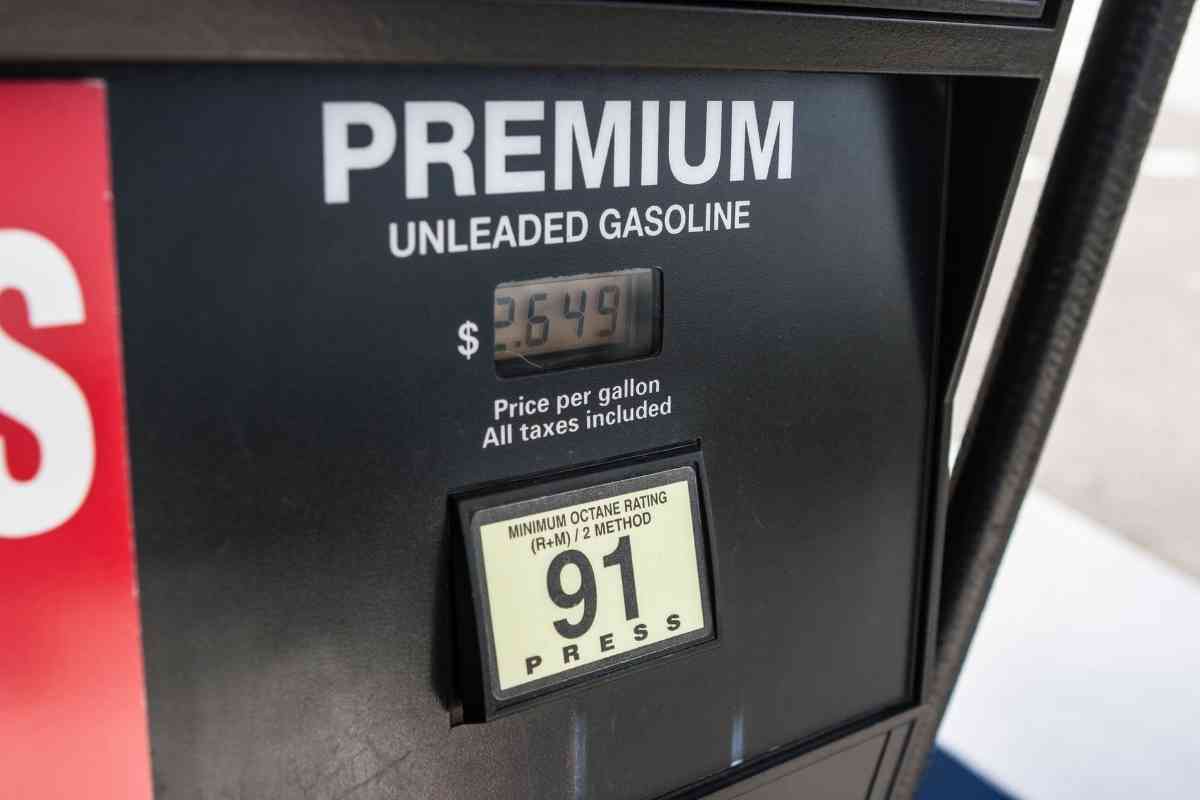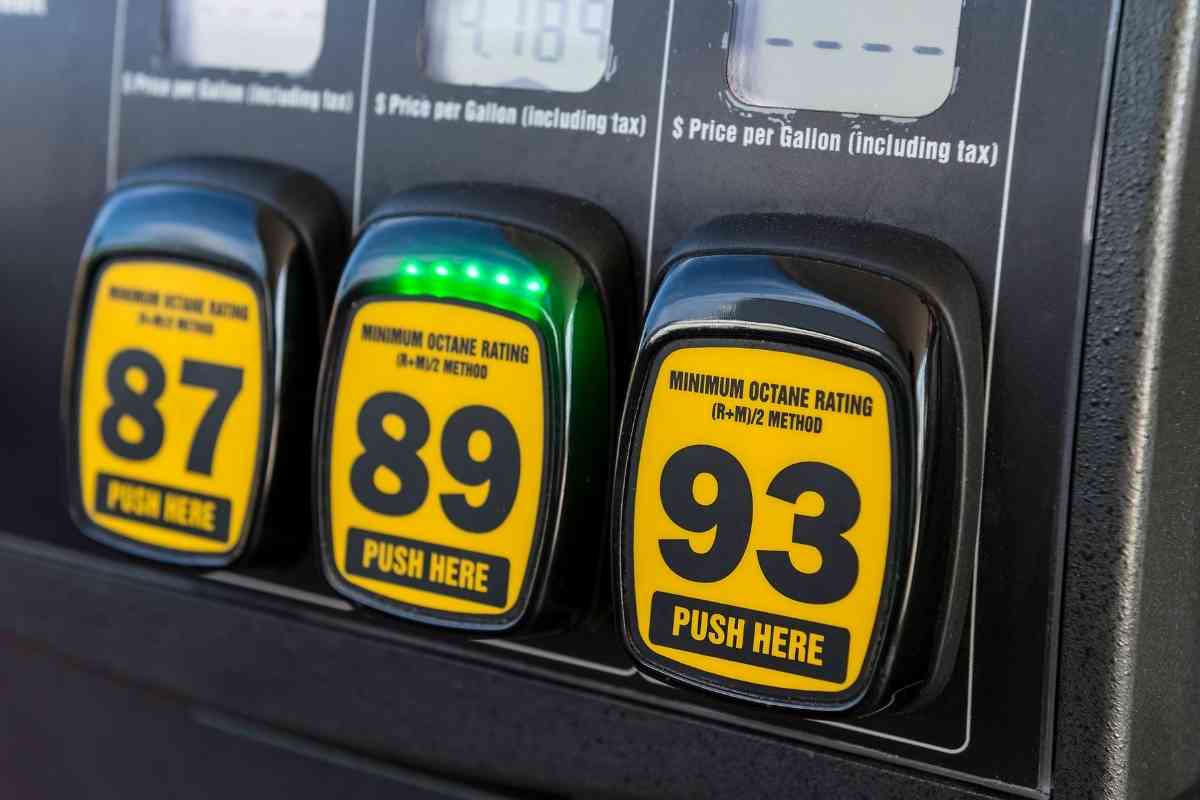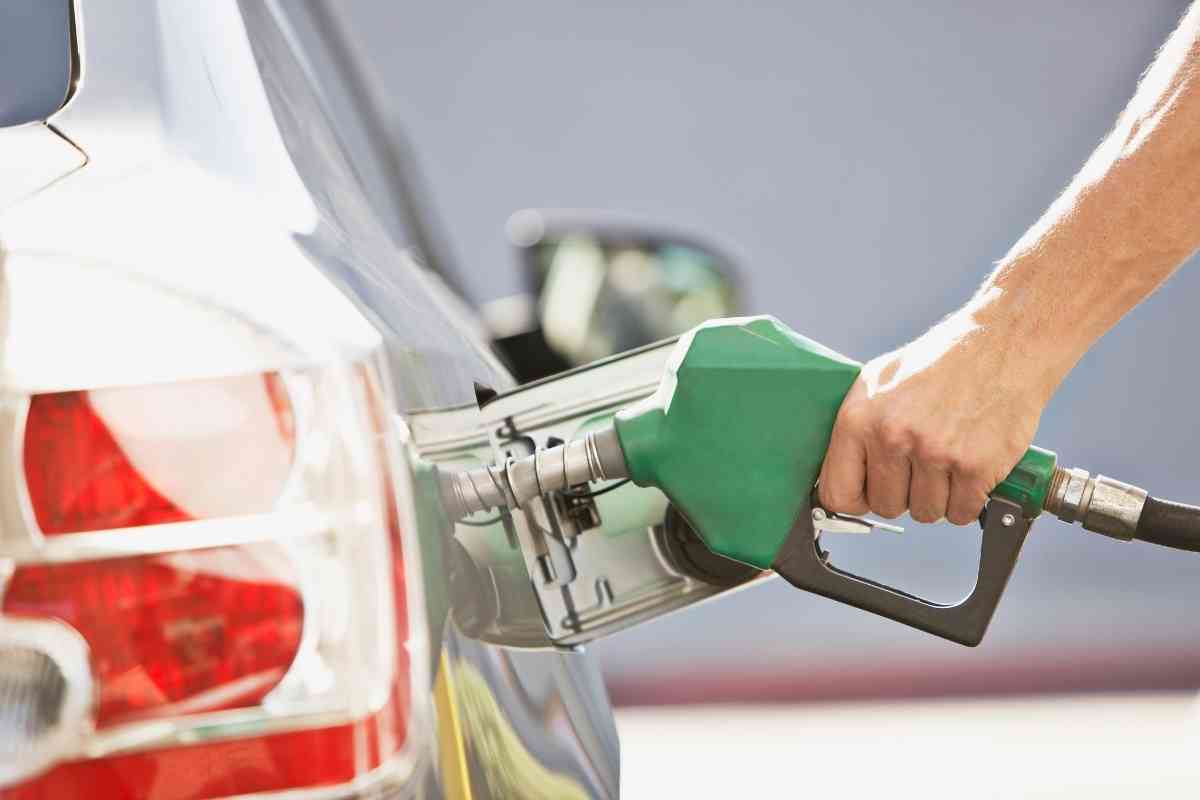Can BMW X3 Run on Regular Gas? (Solved!)
Discover the fuel requirements of the BMW X3 in our in-depth article, “Can BMW X3 Run on Regular Gas?”, where we answer this crucial question for BMW owners and enthusiasts. Unravel the facts about fuel types and their impact on your X3’s performance and longevity.
So, can BMW X3 run on regular gas? Let’s find out. BMW recommends that drivers fill their vehicles with premium fuel.
However, with the price of premium fuel rising to nearly $5 a gallon, regular fuel might seem like a better option.

“Drive Past Myths: Get the Real Deal on Car Buying!”
🚘 Uncover 13 Car Buying Misconceptions with Our FREE Newsletter!
Plus you will get our quick tips, expert advice, and myth-busting insights delivered straight to your inbox.
Subscribe now and make informed decisions without the detours.
“Experts Hate This! Learn the Car Buying Secrets They Don’t Want You to Know. Free Subscription!”

A BMW X3 will run on regular gas, but the engine was designed to run on 91+ octane gas. Fueling a BMW X3 with less than premium fuel could increase the risk of engine damage such as pinging, affecting vehicle longevity. Using premium gas will increase the life of the vehicle.
How much damage can regular fuel really cause? Learn about the effects of filling your BMW X3 with regular fuel below.
Regular gas vs Premium gas
Before we discuss the effects of regular gas in your BMW X3, it is important to know how regular and premium gas are different. The determining factor for the grade of gasoline is the octane rating.
Octane is a chemical present in gasoline that is highly flammable. The octane rating describes the fuel’s ability to ignite evenly in an engine.
A premium gas has a high octane rating, usually of 91 or more. Regular gas typically has an octane rating of 87. There are also mid-grade fuels falling between this range.
Increasing octane doesn’t necessarily improve fuel combustion. A higher octane rating means that the fuel will regulate the air to fuel ratio better. This will help you avoid pre-ignition which causes engine knocking or pinging.
A higher rating technically means a better fuel; however, some cars don’t require a better fuel and won’t benefit from premium fuel much, if at all.
Regular gas has a lower octane rating, but that doesn’t necessarily mean that it is worse for your car. While it has a lower octane rating, it is still an effective fuel for cars that don’t require premium fuel. If your owner’s manual doesn’t recommend premium gasoline, then using regular gas won’t damage your engine.
However, if you have a regular gas vehicle that is experiencing engine knocking, using premium fuel could solve the problem.
So, why does premium gas exist after all? Part of the question “Can BMW X3 run on regular gas?” derives from this.
Premium gas has a higher octane rating, so it is more concentrated with octane. Vehicles that require premium fuel are designed to run on better fuel.
Using less quality fuel in an engine that was built for premium can increase risk of damage and cause decreased performance. So, when it comes to whether the X
The higher octane levels make the fuel more heat resistant and create a better mixture of air and fuel. These benefits help premium gasoline vehicles run more smoothly and decrease chances of experiencing engine knocking.
While the octane rating is an important determining factor for performance and longevity, making sure you get high quality gas that is clean should be a priority. Most gasoline contains detergents that clean the engine as they cycle through, but not all fuels are created equally.
Some gas does a better job at cleaning out your engine and reducing potential buildup that can cause damage.

Top tier gas is the best type of fuel for vehicles. This is usually the cleanest gasoline and has added detergents to keep your engine clean as well. Better quality gasoline will cost more upfront, but poor quality gasoline could rack up repair expenses down the road.
When choosing where to fuel up your car, be wary of discounted fuels connected to grocery store chains. These typically aren’t the best quality and won’t clean out your engine the way top tier fuels will.
Why does the BMW X3 need premium?
Can BMW X3 run on regular gas? Yes, but here’s why it’s not recommended.
The owner’s manual for the BMW X3 warns that using the wrong type of fuel could damage the engine and decrease performance levels. While it is possible to use regular gasoline in your BMW X3 and experience no immediate problems, it will lead to serious problems later on.
The BMW X3 is designed for higher quality fuels and has a more attuned process for combustion, so filling them with lower quality fuels will decrease performance and increase risk of engine damage. Because BMW uses such high-performance engines, they need premium fuel to operate properly.
Regular fuel will not regulate properly in the BMW X3’s engine.
The BMW X3 has electronic components that will help protect the vehicle if lower octane fuels are used, but they cannot prevent all of the problems associated with using the wrong fuels. The BMW X3 has an engine knock sensor that can sense issues with the fuel and retard the igniton process.
This will help remedy engine knocking and prevent some other potential damages. While the knock sensor is a great failsafe, it doesn’t keep your X3 as safe as using premium fuel would.
How does regular gas affect my X3?
When you fill your tank with fuel of a lesser grade than is recommended, you run the risk of pre-ignition, which causes engine knocking or pinging. When your engine knocks or pings, it means that fuel is burning unevenly in the cylinders. Pinging can be caused by a number of different factors, but filling your BMW X3 with regular fuel will definitely cause it.
Engine knocking or pinging is caused by excessive temperatures or a bad mixture of fuel and air in the engine. As stated above, the high octane rated fuels regulate temperatures and keep a balanced mixture of air and fuel.
When you use regular gasoline in your BMW X3, the engine will pre-ignite and cause knocking.
A well maintained BMW X3 will run smoothly on a rhythm, but if it is experiencing pre-ignition, you will hear little knocks or pings coming from the engine. The pings will get louder and faster during acceleration.
Knocking puts excessive wear on engine components and will decrease the lifespan of your X3. It may also cause other more serious issues. Since BMW X3 engines are already prone to excessive wear and tear, any additional wear from knocking could damage the engine beyond repair.
Your BMW X3’s fuel economy could suffer as a result of using poor fuel. Poor fuel causes the engine to knock which means your engine isn’t using the fuel effectively.
When the fuel isn’t used to its full purpose, your BMW X3’s fuel economy suffers. You also lose power. Your X3 engine needs to be running properly in order to reach its full performance.
The question “can BMW X3 run on regular gas?” is so common, there are videos about it.
In addition to loss of performance and efficiency, your vehicle could sustain more long term effects. While using regular gas once in a while likely won’t affect your X3, using it frequently will wear down important engine components.
It can also cause build up of burnt oil, which can bring its own set of problems.
If you choose to use regular gas in your vehicle, your vehicle won’t immediately suffer and you’ll save money at the pump, but using a higher grade fuel will save you money in the long run. Better fuel will also increase the lifespan of your vehicle and performance levels.
Regular gas
Regular gas has a lower octane rating, but that does not necessarily mean it is worse for your car. While it has a lower octane rating, it is still effective for engines that do not require premium fuel.
So, while the answer to “Can BMW X3 run on regular gas?” is a solid no, others can.
If your owner’s manual does not recommend premium gasoline, then using premium gas likely will not give you any benefits. However, if you have a regular gas vehicle experiencing engine knocking, using premium fuel could ease the problem.

Premium gas
Premium gas has a higher octane rating. In other words, it is more concentrated with octane. BMW designed the X3 to use premium fuel. Using less quality fuel in an engine built for premium can increase the risk of damage and cause decreased performance.
The higher octane levels make the fuel more heat resistant and create a better mixture of air and fuel. These benefits help premium gasoline vehicles run more smoothly and decrease chances of experiencing engine knocking.
However, premium gas is more expensive, hence the question “Can BMW X3 run on regular gas?” After all, people want to save money.
Top Tier gas
While the octane rating is a determining factor for performance and longevity, making sure you get high-quality gas that is clean should be a priority.
Most gasoline contains detergents that clean the engine as they cycle through, but not all fuels are equal. Some gas does a better job cleaning out a vehicle’s engine to reduce potential build-up that can cause damage.
The best type of gas to get is top-tier gasoline. Top-tier is usually the cleanest gasoline and has added detergents to keep your engine clean as well. Better gasoline will cost more upfront, but poor gasoline could rack up repair expenses down the road.
When choosing where to fuel up your car, be wary of discounted fuels connected to grocery store chains. These typically are not the best quality and will not clean out your engine the way top-tier fuels will.
Closing Thoughts On Can BMW X3 Run On Regular Gas?
So, can BMW X3 run on regular gas? This is a popular question, and it’s clear that while this is technically possible, it’s not recommended. Premium fuel, with its higher octane rating, is specifically designed to complement the advanced engine of the BMW X3, ensuring optimal performance and longevity.
Regular gas, despite being more cost-effective, may lead to issues like engine knocking and decreased efficiency over time. Opting for regular gas might save money initially, but this decision can lead to increased wear and tear on the engine, potentially resulting in costly repairs down the line.
Premium gas, on the other hand, while more expensive, ensures the BMW X3 runs smoothly, maintains its power, and avoids unnecessary engine stress.
Ultimately, the choice of fuel type for your BMW X3 should be made with both performance and vehicle maintenance in mind. While regular gas won’t immediately harm the X3, consistently using premium fuel is a prudent investment in the vehicle’s future, safeguarding its engine and preserving its high-quality performance.
